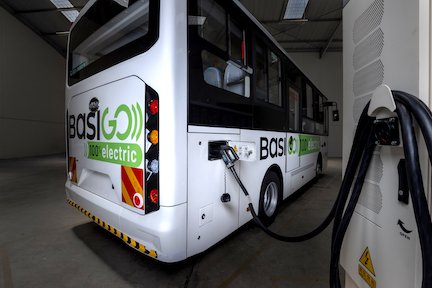By John Msingo
The benefits of electric vehicles (EVs) for transportation in Kenya are undeniable, and as technology continues to advance, these benefits are becoming increasingly apparent.
From environmental and economic impacts to convenience and accessibility, EVs are revolutionizing how Kenyans travel. With lower emissions, lower costs, and improved safety, EVs are quickly becoming the go-to choice for transportation in Kenya.
Read on as we explore the many benefits of electric vehicles and why they are the future of transportation in Kenya.
Internationally the benefits are vast, for starters, Kenya has attracted more than $ 50 million into the sector, (a drop in the ocean compared to what is needed) mostly from external funds and has enabled companies to set up shop here.
As the world looks to decarbonize and transition to more sustainable energy systems, countries with an abundant share of renewables such as Kenya (already over 90% share of electricity mix) will increasingly become more important investment destinations. Kenya’s critical mass of electric mobility startups, across all key segments including, 2W, 3W, 4W, Matatu’s and buses, as well as in charging infrastructure, all of which can be leveraged to propel the local and regional mobility landscape to the next level.
There are incredible economic benefits for the country. In a meeting last year with KAM, the president stated that the country uses five hundred million dollars a month to import fuel. That is $ 6 Billion a year. Reducing this amount will have many benefits, cardinal among them is the reduction in demand for foreign currency currently crippling the economy. Jobs are another benefit the government should eye.
First, all the new companies that have set up shop here have employed Kenyans and as they grow, we expect them to employ more of our brothers and sisters. In addition, this being a new industry worldwide, skilled personnel are scarce. As I write this, skilled Kenyans have been poached and are now working on other continents. We expect the trend to continue as the industry grows. (Labour is looking like a viable foreign exchange earner) The availability of skilled labor will be a factor global brands consider as they set up their African operations. (TESLA please come to Nairobi!)
A secondary benefit to the government will be all the new demand for power that EVs will bring to the grid. Kenya’s’ peak power demand is 2132.29 MW but after 11 PM it falls to about 1200MW. At this point, energy from wind and geothermal is curtailed, resulting in wasted energy. Utilizing this resource could bring down the price of electricity. This will require adjusting charging times for EVs. KPLC is addressing this by offering cheaper charging rates at night.
Companies, Boda Boda riders, matatu owners, ride-hailing app drivers, and anyone in commercial transport will be the biggest beneficiaries of EVs.

Lower operational costs will mean more income for the more than 1.6 million boda boda riders. Additionally, brands that are associated with clean energies are viewed positively by consumers which can benefit businesses adopting EVs. An example of another clear benefit is our company vehicle has operated for 50,000km and only needed maintenance checks twice. The Government is in the process of setting up a Pan African carbon trading market that will add another revenue stream to the sector.
So, what is holding us back from earning all the above revenues and benefits?
For starters, the initial cost of EVs is usually 2-3 times the cost for a comparative zero-mileage vehicle. Inadequate charging infrastructure is another barrier to the adoption of electric mobility in Kenya, especially when it comes to the four-wheeler sector. This is one of the main reasons EVChaja was established 4 years ago. In order to help bridge the charging infrastructure gap, EVChaja focuses on supplying, installing, operating, and maintaining electric car charging infrastructure for fleets, individuals, and the general public.
We have successfully installed our public chargers at several strategic locations, including:
– Waterfront Mall (Karen, Nairobi)
– Two Rivers (Nairobi)
– Adlife Plaza (Kilimani, Nairobi)
– Acardia Mall/Greenpark Estate (Athi River)
– Westside Mall (Nakuru)
– Mega City Mall (Kisumu)
– City Mall (Mombasa)
– Sportsmans Arms (Nanyuki)
Additionally, we have had the privilege of working with esteemed organizations such as:
– NCBA Bank
– Standard Media Group
– Burn Manufacturers
– Kenya Power and Lighting Company (KPLC)
– Kenya Airways
In collaboration with our partners, we are actively growing our charging network across the country to help address the challenges associated with a lack of adequate charging infrastructure such as range anxiety.
Kenya now has a vibrant electric mobility sector that is well represented by the E Mobility Association of Kenya (EMAK). EMAK recently made some recommendations to the government of Kenya concerning taxes on EVs.
While we understand the government’s primary motivation of looking at job creation as the main reason for giving any incentives, there is a lot of value in letting young Kenyans interact with technology and eventually master it. I can count more than fifteen engineers so far who have left for “greener pastures” like Tesla (yes, Elon Musk’s Company), Shell, Range Rover, and a host of many other African Startups. We are already becoming a human resource hub in this technology. It is therefore critical to look at incentivizing the Kenyan EV sector from a holistic point of view.
In conclusion, the benefits of electric vehicles for Kenya’s transportation sector are immense, ranging from environmental sustainability and job creation to economic advantages and improved infrastructure. Addressing the challenges associated with initial costs and introducing supportive policies can accelerate the transition towards a more sustainable and technologically advanced transportation landscape in Kenya, paving the way for the emergence of innovative African companies in the EV sector.
Give us a chance to build the next African unicorns.
John Msingo Is the Chief Revenue Officer of EVChaja and Director of partnerships of AfricaNEV.

